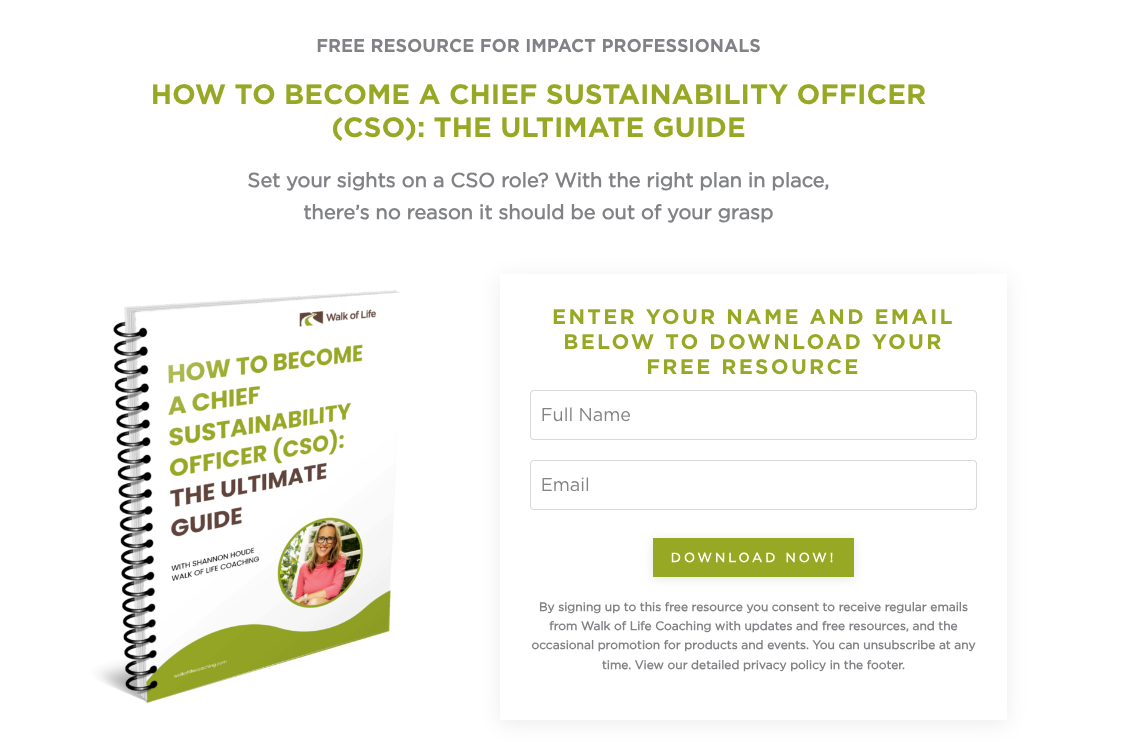Breaking down the role: what exactly does a Chief Sustainability Officer do?
Jun 16, 2023
It’s only in the last two decades that the role of chief sustainability officer (CSO) has begun to gain traction in private companies, with a raft of leading organisations appointing their first CSO in the last few months alone. But what exactly does the role entail? And how will it evolve in the years to come?
While CEOs and CFOs have been taking their place in corporate boardrooms for several decades now, the CSO – Chief Sustainability Officer – is a far more recent addition.
In fact, it wasn’t until 2004 that Linda Fisher, one of sustainability’s true trailblazers, was appointed as the first CSO by US chemical company DuPont. Fisher, who prior to the joining the firm had served as deputy administrator of the Environment Protection Agency for a decade, led DuPont’s efforts to establish its first set of market-facing goals on sustainability, including a strong focus on green innovation.
But despite her big wins, for several years Fisher remained one of only a handful of CSOs.
Fast forward nearly 20 years and that’s all beginning to change.
According to a report from the Weinreb Group, the number of CSOs at US publicly traded companies has grown sixfold since 2011, with the sharpest increase over the last three years. From only 95 CSOs on this list in 2021, there are now 183.
Despite this recent rapid growth in demand for CSOs though, there are still plenty of ambitious sustainability professionals that remain unsure exactly what it means to become one.
So, what exactly does a CSO do?
An evolving role
Broadly speaking all CSOs are tasked with developing, defining and driving progress on an organisation’s sustainability strategy.
Their precise role and responsibilities however are still being worked out. It can vary by sector, by organisation and – of course – by individual, with many ‘first in role’ CSOs still carving out the boundaries of their position as they go.
But that said, there are some common elements that are likely to fall under any CSO’s remit.
These include:
- Coordinating with both internal and external stakeholders: Be it convincing other members of the board to prioritise environmental impact, working with different departments to identify opportunities or communicating progress on sustainability goals to the public via annual reports, a CSO will be at the helm of all sustainability-related collaboration and communication.
- Designing sustainability initiatives: Though not all CSOs will come with a technical or scientific background, they will be expected to work with others in a business to identify and design goals and initiatives that help the organisation demonstrate progress on sustainability.
- Understanding the impact of external regulation: An increase in required reporting on sustainability is one of the major challenges faced by many large companies. Any CSO will be expected to have a solid grasp of existing and emerging regulation and understand exactly what’s required of a company to remain compliant.
Increasing influence
Though they may be a relatively recent addition, CSOs are already having a significant influence on the direction taken by many major companies.
Take Rebecca Marmot, who was appointed as Chief Sustainability Officer at consumer goods giant Unilever in 2019. Under her leadership the company has spearheaded transformational plans across its expansive portfolio, including ambitions to make all product formulations biodegradable, implementing water stewardship programmes at 100 manufacturing sites, and empowering farmers and smallholders to protect and regenerate their environments.
Or Catherine Dolton, CSO at InterContinental Hotels Group, who has leveraged her 20 years of experience at the hospitality company to launch its sustainability strategy Journey to Tomorrow, a programme that will drive 10 years of responsible business through a series of ambitious targets set to support people, community development and the planet.
The reality is, with sustainability now recognized firmly as a business-critical issue, the influence of CSOs can be vast, touching on every department and function, and informing the future direction of an organisation.
An impressive skillset
Unsurprisingly given this level of influence and impact, the role of CSO is reserved for those with a demonstrable level of skills, experience and knowledge around exactly what it takes to design and implement a sustainability strategy.
There’s no set CV here though.
Some CSOs will have spent several years working with NGOs prior to making the leap into a corporate role. Others will be veterans of the organisation at which they are appointed as CSO, bringing with them an invaluable understanding of that business’s needs. And others will bring with them a more technical background in climate-related risks, for example.
At Italy-based confectionery company Perfetti Van Melle, for example, CSO Andrew Boyd is considered a subject-matter expert in climate change risk mitigation, waste management and water reduction.
In other words, there’s no set path you need to follow to become a CSO. But there are particular skills you’ll be expected to demonstrate in order to do the role effectively, whatever your background.
These include:
- Excellent communication: You’ll need the ability to persuade reluctant colleagues to care about sustainability initiatives and articulate progress to a range of external stakeholders too, including regulators, the media and customers. All which makes fantastic communication skills a deal-breaker.
- Tenacity: Driving transformational change at a large company can be an uphill battle, with many still sceptical about the need for change when it comes to sustainability. To overcome this requires serious amounts of dogged determination.
- Commercial know-how: CSOs will need to have a good grasp of a company’s operational needs and goals before they can implement a workable sustainability strategy. This is why many CSOs are recruited from within an organisation.
- Proven leadership skills: It sounds like an obvious one but – just as with any other member of the senior leadership team – CSOs will need the ability to effectively lead both their own team and the wider organisation on all issues related to sustainability.
The future CSO
CSOs are fast becoming a critical role in most large and some medium-sized organisations as the private sector grapples with growing expectations around sustainability.
That’s only set to increase in the future too, with an overwhelming 99% of respondents in one survey by Deloitte agreeing that CSOs will become more important in the next five years.
Not only that but the role is undergoing a ‘rapid and dramatic transformation,’ according to Harvard Business Review, with a shift away from telling a great PR-friendly story on ESG to crafting and integrating genuinely transformational sustainability initiatives within organisations.
This is only increasing the calibre of candidates that companies are seeking out as they appoint – in many cases – their first CSO.
In short, though it may have taken many years for the potential in CSOs to catch on in the corporate world, there’s no stopping their rapid growth now with the role growing in impact, influence and ambition.
Are you an ambitious sustainability professional looking to become a CSO or take your career to the next level? With my 12-month in-depth program I can help you reach those goals, working closely with you to craft a personal brand, develop leadership skills and grow your influence. For more information click here.









